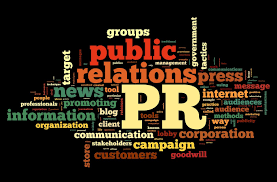Title: Crisis Communication Experts: Navigating Turbulent Waters with Confidence
Introduction:
In today’s fast-paced and interconnected world, businesses and organizations are constantly exposed to a wide range of risks and crises that can potentially damage their reputation and bottom line. When faced with a crisis, having the expertise of crisis communication professionals can make all the difference in effectively managing the situation, preserving trust, and safeguarding long-term success.
Understanding Crisis Communication:
Crisis communication is a specialized field that focuses on strategically managing communication during times of uncertainty, adversity, or reputational threats. It involves developing comprehensive plans, protocols, and strategies to effectively address crises while maintaining transparency, credibility, and empathy.
The Role of Crisis Communication Experts:
Crisis communication experts are seasoned professionals who possess a deep understanding of the dynamics surrounding crises. They provide invaluable guidance to organizations in preparing for potential crises and offer swift assistance when they occur. These experts play a pivotal role in helping businesses navigate through turbulent waters by offering the following:
Proactive Planning:
Crisis communication experts work closely with organizations to develop robust crisis management plans tailored to their specific needs. They conduct thorough risk assessments, identify potential vulnerabilities, and create comprehensive strategies to mitigate risks proactively. By being prepared beforehand, businesses can respond swiftly and effectively when a crisis strikes.
Rapid Response:
During a crisis, time is of the essence. Crisis communication experts excel at providing rapid response services that enable organizations to communicate promptly with stakeholders such as employees, customers, partners, and the media. They help craft clear messages that convey accurate information while maintaining transparency and addressing concerns.
Reputation Management:
Preserving reputation is crucial during a crisis. Communication experts understand how public perception can impact an organization’s brand image in both the short and long term. They employ strategic messaging techniques to protect reputation by highlighting positive actions taken by the organization while addressing any shortcomings transparently.
Media Relations:
Dealing with the media during a crisis requires finesse and expertise. Crisis communication experts are well-versed in managing media relations, including crafting press releases, organizing press conferences, and conducting media interviews. They ensure that accurate information is disseminated promptly to minimize misinformation and speculation.
Stakeholder Engagement:
Maintaining trust and open lines of communication with stakeholders is essential during a crisis. Crisis communication experts help organizations engage effectively with key stakeholders, providing clear and consistent messaging while addressing their concerns and needs. This fosters trust, loyalty, and support during challenging times.
Conclusion:
In an unpredictable world where crises can arise at any moment, the role of crisis communication experts cannot be underestimated. Their expertise enables organizations to navigate through difficult situations with confidence, ensuring that their reputation remains intact while minimizing potential damage. By partnering with these professionals, businesses can be better prepared to face crises head-on, communicating effectively and preserving their long-term success.
Frequently Asked Questions about Crisis Communication Experts in the UK
- What is the job description of crisis communication?
- Who are the members of a crisis communication team?
- What is a crisis expert?
- What are the 5 pillars of crisis communication?
What is the job description of crisis communication?
Job Description: Crisis Communication Specialist
A crisis communication specialist is a skilled professional who specializes in managing and strategizing communication during times of crisis, adversity, or reputational threats. They play a crucial role in helping organizations navigate through challenging situations while protecting their reputation, maintaining stakeholder trust, and minimizing potential damage. The job description of a crisis communication specialist typically includes the following responsibilities:
Crisis Preparedness:
– Conducting thorough risk assessments to identify potential crises and vulnerabilities.
– Developing comprehensive crisis management plans and protocols tailored to the organization’s needs.
– Collaborating with key stakeholders to ensure preparedness across all departments.
– Establishing clear lines of communication and designated spokespersons for different scenarios.
Rapid Response:
– Monitoring and assessing emerging crises or potential threats.
– Acting swiftly to gather accurate information and verify facts.
– Crafting clear and concise messages that address the situation effectively.
– Coordinating with internal teams to disseminate information promptly.
Media Relations:
– Managing relationships with media outlets, journalists, and influencers.
– Drafting press releases, statements, and other media communications.
– Organizing press conferences or briefings to address the crisis transparently.
– Conducting media interviews on behalf of the organization’s spokesperson.
Stakeholder Engagement:
– Identifying key stakeholders relevant to the crisis situation.
– Developing strategies to engage stakeholders effectively during turbulent times.
– Providing timely updates, addressing concerns, and answering questions from stakeholders.
– Maintaining open lines of communication to foster trust and support.
Reputation Management:
– Monitoring public sentiment and perception during a crisis.
– Crafting messaging strategies that protect the organization’s reputation.
– Addressing any misinformation or rumors promptly with accurate information.
– Highlighting positive actions taken by the organization to mitigate damage.
Training and Education:
– Conducting crisis communication training sessions for employees at all levels.
– Educating staff on their roles during a crisis situation.
– Providing guidance on effective communication techniques and protocols.
– Continuously staying updated on industry trends, best practices, and new crisis communication tools.
Required Skills and Qualifications:
– Strong verbal and written communication skills.
– Crisis management and problem-solving abilities.
– Excellent interpersonal and relationship-building skills.
– Ability to work well under pressure and make quick decisions.
– Proficiency in media relations and public speaking.
– Knowledge of social media platforms and digital communication strategies.
– Familiarity with legal and ethical considerations in crisis communication.
– Experience in managing crises across various industries is a plus.
Conclusion:
The role of a crisis communication specialist is critical in helping organizations navigate through turbulent times. By effectively managing communication, these professionals ensure that accurate information is disseminated, stakeholders are engaged, reputation is protected, and potential damage is minimized. Their expertise allows organizations to respond swiftly, transparently, and confidently during crises while maintaining trust with stakeholders.
Who are the members of a crisis communication team?
A crisis communication team typically consists of key individuals who are responsible for managing and coordinating communication efforts during a crisis. While the specific composition may vary depending on the organization’s size and structure, here are some common roles within a crisis communication team:
- Crisis Communication Manager/Leader: This individual is responsible for overseeing the entire crisis communication process. They coordinate the team’s efforts, make strategic decisions, and ensure that communication is aligned with the organization’s goals and values.
- Spokesperson: The spokesperson serves as the official voice of the organization during a crisis. They communicate with the media, deliver statements, participate in interviews, and provide updates to stakeholders. The spokesperson should be a trusted individual who can effectively convey key messages while maintaining composure under pressure.
- Public Relations/Communication Specialists: These professionals are skilled in crafting clear and concise messages tailored to different audiences. They work closely with the crisis communication manager to develop messaging strategies, write press releases, manage social media platforms, and handle other communication channels.
- Legal Counsel: In certain crises, legal implications may arise. Having a legal counsel as part of the crisis communication team ensures that all communications comply with legal requirements and safeguards the organization’s interests.
- Subject Matter Experts: Depending on the nature of the crisis, subject matter experts from relevant departments or areas may be included in the team. These individuals possess specialized knowledge that can help inform accurate messaging and provide insights into potential impacts or solutions related to the crisis.
- Human Resources Representative: If a crisis involves internal matters such as employee safety or welfare, having an HR representative on the team is crucial. They can provide guidance on internal communications, address employee concerns, and ensure that staff members receive necessary support during challenging times.
- IT/Technical Support: In today’s digital age, crises often involve technological aspects such as cybersecurity breaches or system failures. Including IT or technical support personnel ensures that any technical communication needs or challenges are addressed promptly and effectively.
It’s important to note that the crisis communication team should also have clear lines of communication with senior management and other relevant departments within the organization. Collaboration and coordination across different teams are essential for a comprehensive crisis response.
The size and structure of the team may vary based on the organization’s resources and the severity of the crisis. The key is to have a diverse group of individuals who can collectively manage communication efforts, provide expertise, and ensure a cohesive response in times of crisis.
What is a crisis expert?
A crisis expert, also known as a crisis communication expert or crisis management expert, is a professional who specializes in guiding organizations through challenging and high-stakes situations. These experts possess extensive knowledge and experience in managing crises effectively, protecting reputation, and minimizing potential damage to an organization’s brand and operations.
Crisis experts are well-versed in understanding the dynamics of crises and have the skills to develop strategies, plans, and protocols to address various types of crises. They work closely with organizations to assess risks, identify vulnerabilities, and create proactive measures to mitigate potential threats.
During a crisis, these experts play a crucial role in providing rapid response services. They help organizations communicate promptly with stakeholders such as employees, customers, partners, and the media. Crisis experts assist in crafting clear and accurate messages that maintain transparency while addressing concerns effectively.
Reputation management is another key aspect of a crisis expert’s role. They understand how public perception can impact an organization’s reputation in both the short and long term. By employing strategic messaging techniques, they protect an organization’s reputation by highlighting positive actions taken while addressing any shortcomings transparently.
Media relations form an essential part of crisis management. Crisis experts are skilled at managing media interactions during times of uncertainty or adversity. They craft press releases, organize press conferences, conduct media interviews, and ensure accurate information is disseminated promptly to minimize misinformation or speculation.
Furthermore, crisis experts assist organizations in engaging with their key stakeholders during a crisis. By maintaining open lines of communication and addressing stakeholder concerns effectively, they foster trust and support during challenging times.
Overall, a crisis expert is someone who possesses the knowledge, experience, and skills necessary to guide organizations through crises successfully. Their expertise helps businesses navigate through difficult situations with confidence while preserving their reputation and long-term success.
What are the 5 pillars of crisis communication?
The 5 pillars of crisis communication provide a framework for effectively managing and responding to crises. These pillars are essential in guiding organizations through challenging times and maintaining trust and credibility. They are as follows:
- Preparedness: The first pillar is proactive planning and preparedness. This involves conducting thorough risk assessments, identifying potential crises, and developing comprehensive crisis management plans. Preparedness includes establishing clear roles and responsibilities, creating communication protocols, and conducting regular training exercises to ensure readiness.
- Response: The second pillar focuses on the timely response to a crisis. It involves swift decision-making, clear communication channels, and effective coordination among key stakeholders. Crisis communication experts play a crucial role in crafting appropriate messages that address the situation transparently while providing accurate information to stakeholders.
- Accuracy: Maintaining accuracy is vital during a crisis to combat misinformation and rumors that can spread rapidly. Organizations must ensure that the information they communicate is accurate, consistent, and verified before sharing it with stakeholders. Crisis communication experts help in fact-checking information before dissemination.
- Transparency: Transparent communication is essential in building trust during a crisis. Organizations should strive to be open, honest, and forthcoming about the situation at hand, acknowledging any mistakes or shortcomings when necessary. Transparency helps mitigate speculation, fosters understanding, and demonstrates accountability.
- Learning and Adaptation: The final pillar emphasizes the importance of learning from each crisis experience to improve future response strategies continually. Organizations should conduct post-crisis evaluations to identify strengths, weaknesses, lessons learned, and areas for improvement. By adapting their crisis communication strategies based on these insights, organizations can enhance their preparedness for future crises.
By following these five pillars of crisis communication – preparedness, response, accuracy, transparency, and learning/adaptation – organizations can effectively manage crises while minimizing reputational damage and maintaining stakeholder trust throughout challenging times.






